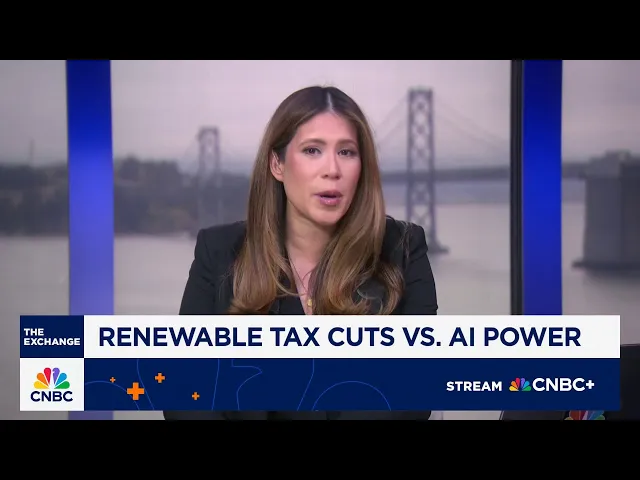Trump’s megabill impact on the U.S. AI race

Trump's megabill could reshape US AI competition
In a political landscape increasingly defined by technological supremacy, former President Donald Trump's proposed "Department of Government Efficiency" (DOGE) has sparked intense debate about American competitiveness in artificial intelligence. The initiative, co-led by Elon Musk, aims to slash government bureaucracy while potentially reshaping how the United States approaches AI development against rising global competitors.
Key Insights
-
Trump's DOGE proposal represents a significant shift in government approach to efficiency, promising to cut regulations and bureaucracy that may be hindering American technological competitiveness
-
The initiative signals greater emphasis on AI development as a national security priority, potentially accelerating public-private partnerships in the space
-
Elon Musk's involvement brings a Silicon Valley perspective to government reform, suggesting a more business-oriented approach to national AI strategy
The Competitiveness Imperative
The most compelling aspect of this development isn't the political theater surrounding Trump and Musk's alliance, but rather what it reveals about America's growing anxiety regarding its position in the global AI race. While China has implemented cohesive national strategies for AI development with substantial government backing, the United States has relied primarily on private sector innovation without comprehensive federal coordination.
This matters profoundly because AI is increasingly viewed not merely as a commercial opportunity but as critical infrastructure with national security implications. The country that establishes technological leadership in AI may gain unprecedented economic and geopolitical advantages—from military applications to economic productivity and social influence. Trump's megabill, despite its partisan framing, acknowledges this reality by positioning governmental efficiency as a prerequisite for technological competitiveness.
Beyond the Headlines: What's Missing
The discussion around Trump's proposal often overlooks the nuanced reality of how innovation actually thrives. While reducing bureaucratic obstacles may help, successful national AI strategies typically require more than deregulation. Countries like South Korea and Israel have demonstrated that targeted government investment in research, education, and infrastructure—not just regulatory pullback—creates fertile ground for technological advancement.
Moreover, the current proposal lacks specificity about talent development. America's historical technological advantages have stemmed largely from its ability to attract and retain global talent. Any comprehensive approach to AI competitiveness must address immigration policies for technical experts and researchers—an area where the previous Trump administration took a restrictive stance.
Recent Videos
How To Earn MONEY With Images (No Bullsh*t)
Smart earnings from your image collection In today's digital economy, passive income streams have become increasingly accessible to creators with various skill sets. A recent YouTube video cuts through the hype to explore legitimate ways photographers, designers, and even casual smartphone users can monetize their image collections. The strategies outlined don't rely on unrealistic promises or complicated schemes—instead, they focus on established marketplaces with proven revenue potential for image creators. Key Points Stock photography platforms like Shutterstock, Adobe Stock, and Getty Images remain viable income sources when you understand their specific requirements and optimize your submissions accordingly. Specialized marketplaces focusing...
Oct 3, 2025New SHAPE SHIFTING AI Robot Is Freaking People Out
Liquid robots will change everything In the quiet labs of Carnegie Mellon University, scientists have created something that feels plucked from science fiction—a magnetic slime robot that can transform between liquid and solid states, slipping through tight spaces before reassembling on the other side. This technology, showcased in a recent YouTube video, represents a significant leap beyond traditional robotics into a realm where machines mimic not just animal movements, but their fundamental physical properties. While the internet might be buzzing with dystopian concerns about "shape-shifting terminators," the reality offers far more promising applications that could revolutionize medicine, rescue operations, and...
Oct 3, 2025How To Do Homeless AI Tiktok Trend (Tiktok Homeless AI Tutorial)
AI homeless trend raises ethical concerns In an era where social media trends evolve faster than we can comprehend them, TikTok's "homeless AI" trend has sparked both creative engagement and serious ethical questions. The trend, which involves using AI to transform ordinary photos into images depicting homelessness, has rapidly gained traction across the platform, with creators eagerly jumping on board to showcase their digital transformations. While the technical process is relatively straightforward, the implications of digitally "becoming homeless" for entertainment deserve careful consideration. The video tutorial provides a step-by-step guide on creating these AI-generated images, explaining how users can transform...
